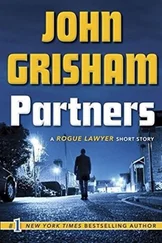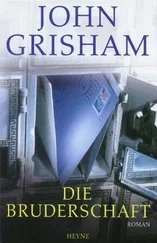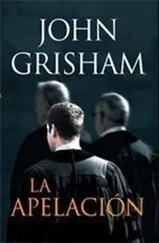John Grisham - Chamber
Здесь есть возможность читать онлайн «John Grisham - Chamber» весь текст электронной книги совершенно бесплатно (целиком полную версию без сокращений). В некоторых случаях можно слушать аудио, скачать через торрент в формате fb2 и присутствует краткое содержание. Жанр: Триллер, на английском языке. Описание произведения, (предисловие) а так же отзывы посетителей доступны на портале библиотеки ЛибКат.
- Название:Chamber
- Автор:
- Жанр:
- Год:неизвестен
- ISBN:нет данных
- Рейтинг книги:4 / 5. Голосов: 1
-
Избранное:Добавить в избранное
- Отзывы:
-
Ваша оценка:
- 80
- 1
- 2
- 3
- 4
- 5
Chamber: краткое содержание, описание и аннотация
Предлагаем к чтению аннотацию, описание, краткое содержание или предисловие (зависит от того, что написал сам автор книги «Chamber»). Если вы не нашли необходимую информацию о книге — напишите в комментариях, мы постараемся отыскать её.
Chamber — читать онлайн бесплатно полную книгу (весь текст) целиком
Ниже представлен текст книги, разбитый по страницам. Система сохранения места последней прочитанной страницы, позволяет с удобством читать онлайн бесплатно книгу «Chamber», без необходимости каждый раз заново искать на чём Вы остановились. Поставьте закладку, и сможете в любой момент перейти на страницу, на которой закончили чтение.
Интервал:
Закладка:
He hired a skilled trial advocate from Memphis named Benjamin Keyes. Their first tactic was to move to dismiss the indictment on the grounds that it was unfair to try him again after such a delay. This proved to be a persuasive argument, and it took a decision by the Mississippi Supreme Court to settle the matter. By a vote of six to three, the court ruled that the prosecution could proceed.
And proceed it did. The third and final trial of Sam Cayhall began in February of 1981, in a chilly little courthouse in Lakehead County, a hill county in the northeastern corner of the state. Much could be said about the trial. There was a young district attorney, David McAllister, who performed brilliantly but had the obnoxious habit of spending all his spare time with the press. He was handsome and articulate and compassionate, and it became very clear that this trial had a purpose. Mr. McAllister had political ambitions on a grand scale.
There was a jury of eight whites and four blacks. There were the glass sample, the fuse, the FBI reports, and all the other photos and exhibits from the first two trials.
And then, there was the testimony of Jeremiah Dogan, who took the stand in a denim workshirt and with a humble countenance solemnly explained to the jury how he conspired with Sam Cayhall sitting over there to bomb the office of Mr. Kramer. Sam glared at him intensely and absorbed every word, but Dogan looked away. Sam's lawyer berated Dogan for half a day, and forced him to admit that he'd cut a deal with the government. But the damage was done.
It was of no benefit to the defense of Sam Cayhall to raise the issue of Rollie Wedge. Because to do so would be to admit that Sam in fact had been in Greenville with the bomb. Sam would be forced to admit that he was a coconspirator, and under the law he would be just as guilty as the man who planted the dynamite. And to present this scenario to the jury, Sam would be forced to testify, something neither he nor his attorney wanted. Sam could not withstand a rigorous cross-examination, because Sam would be forced to tell one lie to cover the last.
And, at this point, no one would believe a sudden tale of a mysterious new terrorist who'd never been mentioned before, and who came and went without being seen. Sam knew the Rollie Wedge angle was futile, and he never mentioned the man's name to his own lawyer.
* * *
At the close of the trial, David McAllister stood before the jury in a packed courtroom and presented his closing argument. He talked of being a youngster in Greenville and having Jewish friends. He didn't know they were different. He knew some of the Kramers, fine folks who worked hard and gave back to the town. He also played with little black kids, and learned they made wonderful friends. He never understood why they went to one school and he went to another. He told a gripping story of feeling the earth shake on the morning of April 21, 1967, and running in the direction of downtown where smoke was drifting upward. For three hours, he stood behind the police barricades and waited. He saw the firemen scurry about when they found Marvin Kramer. He saw them huddle in the debris when they found the boys. Tears dripped down his cheeks when the little bodies, covered in white sheets, were carried slowly to an ambulance.
It was a splendid performance, and when McAllister finished the courtroom was silent. Several of the jurors dabbed at their eyes.
* * *
On February 12, 1981, Sam Cayhall was convicted on two counts of capital murder and one count of attempted murder. Two days later, the same jury in the same courtroom returned with a sentencing verdict of death.
He was transported to the state penitentiary at Parchman to begin waiting for his appointment with the gas chamber. On February 19, 1981, he first set foot on death row.
4
THE law firm of Kravitz & Bane had almost three hundred lawyers peacefully coexisting under the same roof in Chicago. Two hundred and eighty-six to be exact, though it was difficult for anyone to keep score because at any given moment there were a dozen or so leaving for a multitude of reasons, and there were always two dozen or so shiny, fresh new recruits trained and polished and just itching for combat. And though it was huge, Kravitz & Bane had failed to play the expansion game as quickly as others, had failed to gobble up weaker firms in other cities, had been slow to raid clients from its competitors, and thus had to suffer the distinction of being only the third largest firm in Chicago. It had offices in six cities, but, much to the embarrassment of the younger partners, there was no London address on the letterhead.
Though it had mellowed some, Kravitz & Bane was still known as a vicious litigation firm. It had tamer departments for real estate, tax, and antitrust, but its money was made in litigation. When the firm recruited it sought the brightest third-year students with the highest marks in mock trials and debate. It wanted young men (a token female here and there) who could be instantly trained in the slash-and-attack style perfected long ago by Kravitz & Bane litigators.
There was a nice though small unit for plaintiffs' personal injury work, good stuff from which they took 50 percent and allowed their clients the remainder. There was a sizable section for white-collar criminal defense, but the white-collar defendant needed a sizable net worth to strap on Kravitz & Bane. Then there were the two largest sections, one for commercial litigation and one for insurance defense. With the exception of the plaintiffs' work, and as a percentage of gross it was almost insignificant, the firm's money was earned by billable hours. Two hundred bucks per hour for insurance work; more if the traffic could stand it. Three hundred bucks for criminal defense. Four hundred for a big bank. Even five hundred dollars an hour for a rich corporate client with lazy in-house lawyers who were asleep at the wheel.
Kravitz & Bane printed money by the hour and built a dynasty in Chicago. Its offices were fashionable but not plush. They filled the top floors of, fittingly, the third-tallest building downtown.
Like most large firms, it made so much money it felt obligated to establish a small pro bono section to fulfill its moral responsibility to society. It was quite proud of the fact that it had a full-time pro bono partner, an eccentric do-gooder named E. Garner Goodman, who had a spacious office with two secretaries on the sixty-first floor. He shared a paralegal with a litigation partner. The firm's gold-embossed brochure made much of the fact that its lawyers were encouraged to pursue pro bono projects. The brochure proclaimed that last year, 1989, Kravitz & Bane lawyers donated almost sixty thousand hours of their precious time to clients who couldn't pay. Housing project kids, death row inmates, illegal aliens, drug addicts, and, of course, the firm was deeply concerned with the plight of the homeless. The brochure even had a photograph of two young lawyers, jackets off, sleeves rolled up, ties loosened about the neck, sweat in the armpits, eyes filled with compassion, as they performed some menial chore in the midst of a group of minority children in what appeared to be an urban landfill. Lawyers saving society.
Adam Hall had one of the brochures in his thin file as he eased slowly along the hallway on floor sixty-one, headed in the general direction of the office of E. Garner Goodman. He nodded and spoke to another young lawyer, one he'd never seen before. At the firm Christmas party name tags were distributed at the door. Some of the partners barely knew each other. Some of the associates saw each other once or twice a year. He opened a door and entered a small room where a secretary stopped typing and almost smiled. He asked for Mr. Goodman, and she nodded properly to a row of chairs where he was to wait. He was five minutes early for a 10 A.m. appointment, as if it mattered. This was pro bono now. Forget the clock. Forget billable hours. Forget performance bonuses. In defiance of the rest of the firm, Goodman allowed no clocks on his walls.
Читать дальшеИнтервал:
Закладка:
Похожие книги на «Chamber»
Представляем Вашему вниманию похожие книги на «Chamber» списком для выбора. Мы отобрали схожую по названию и смыслу литературу в надежде предоставить читателям больше вариантов отыскать новые, интересные, ещё непрочитанные произведения.
Обсуждение, отзывы о книге «Chamber» и просто собственные мнения читателей. Оставьте ваши комментарии, напишите, что Вы думаете о произведении, его смысле или главных героях. Укажите что конкретно понравилось, а что нет, и почему Вы так считаете.











